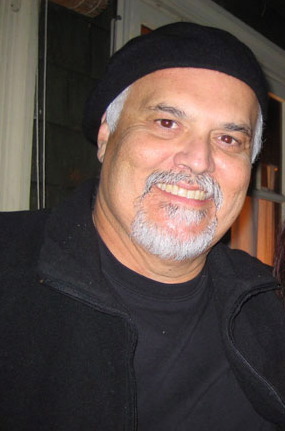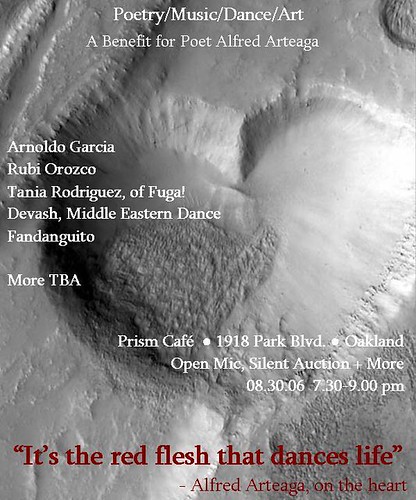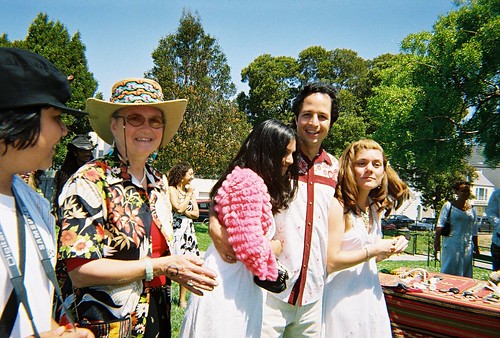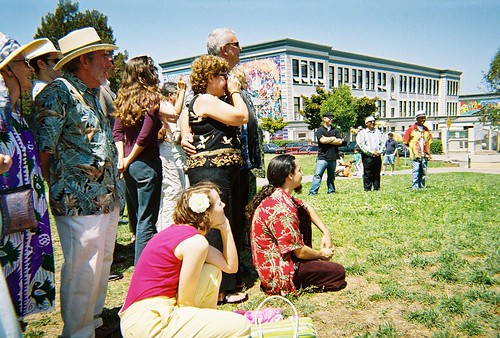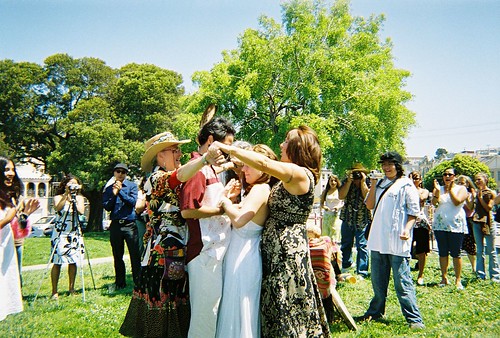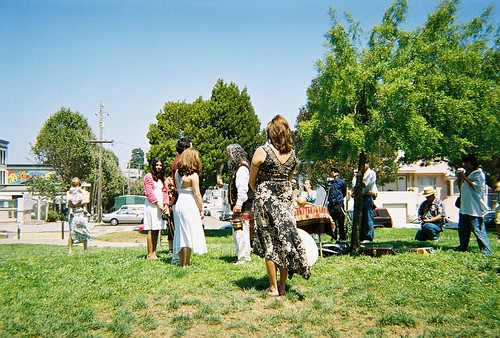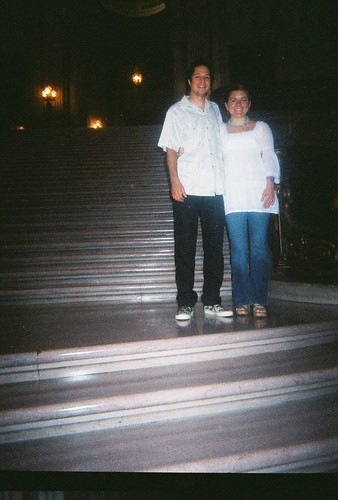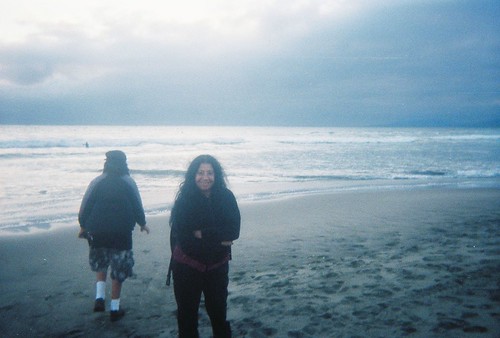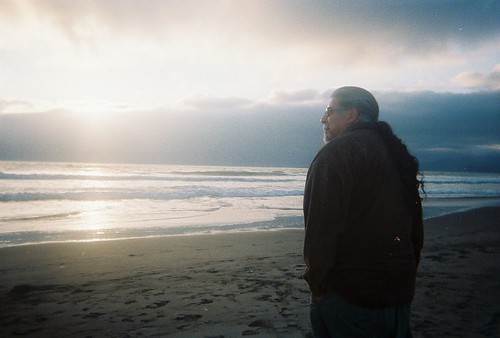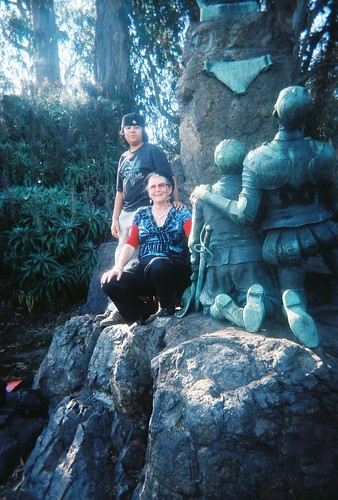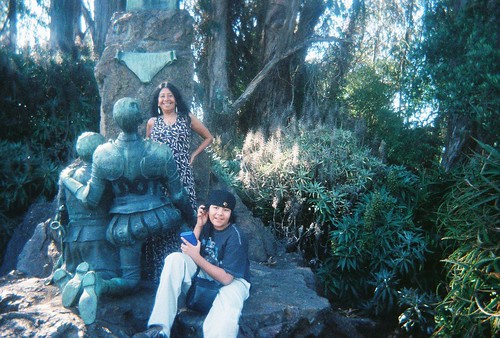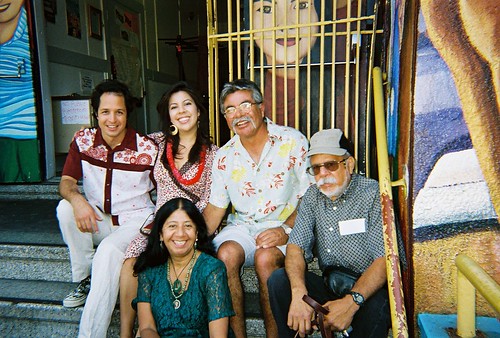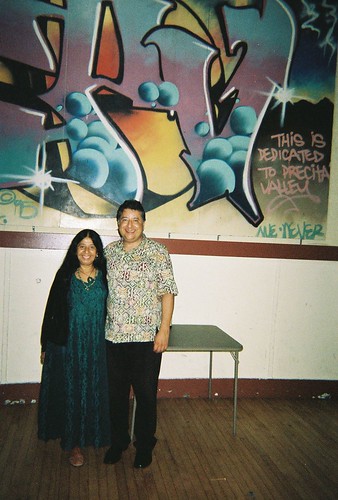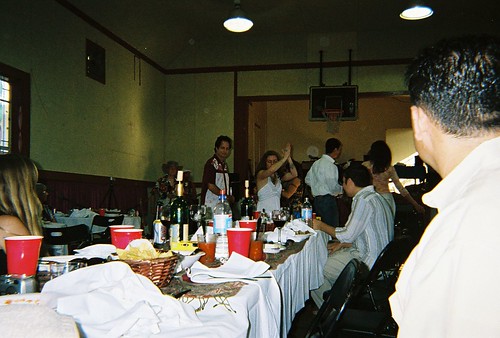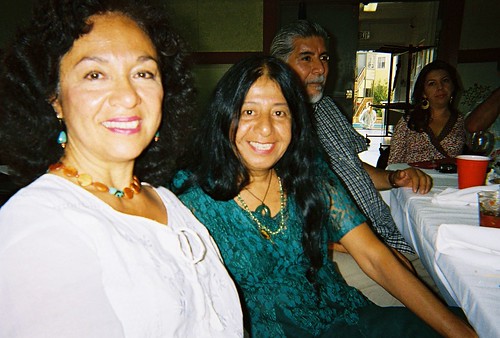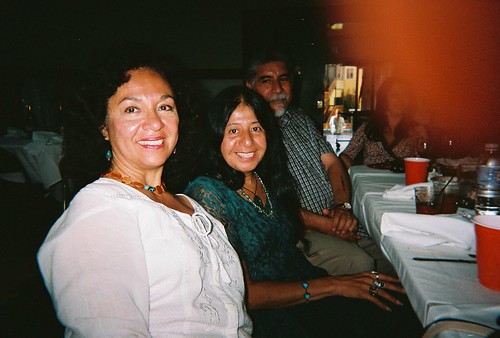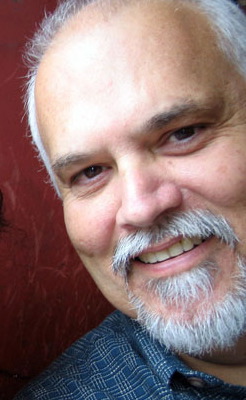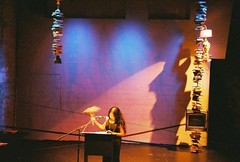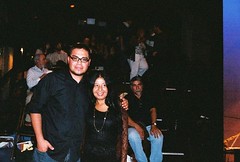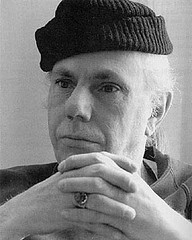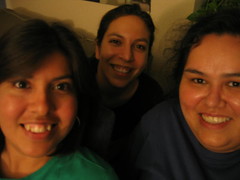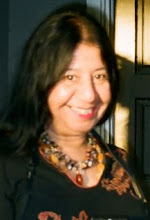I am so disappointed I'm going to cry! Evidently, the Poetry Foundation email system is trashing my emails and they didn't receive the long blog post I sent at 5 am this morning -- well before the 9 am deadline. Then, I happened to come home between classes today to print something, and had an email that they hadn't received it. I sent an email, then sent it about four more, then forwarded all those. It's like talking into a phone where you know they can't hear you. Now, evidently, it's too late. They finally got one email when I took off the cc they asked me to add, and it's too bad, but they are going ahead and replacing me for the week. It's so disappointing. I stay up all night typing in order to get it in on time, and they don't get it. You would think, for all the resources, they could just set up a group blog like CafeCafe and we can do our own uploading. I've been working on these posts since June. I've been working all night for 3 nights in a row. It's a lot of work for me to write prose. My email record clearly shows that I sent it, along with about 8 more. DANG! I'm going to cry. I guess I'm not blogging for the Poetry Foundation after all, contract or no.
Political glitches?
Oh well, here's what you would have read at
the Poetry Foundation website. Just click on "Journals" under "Dispatches" to read my introductory post and a brand new poem, "Shelling the Pecans." And you can read whomever they get to replace me. Yikes, here come the tears...
------------------------------------
(In honor of the Chicano Moratorium, August 29, I post this paper delivered March 10 in Austin, Texas, at the Association of Writers and Writing Programs Conference panel, "The Role of the Activist Chicano Poet.")
Towards the Mater of Chicana/o Poetry — Towards What Matters "Words belong to the polis and the words return to the polis."
"I am an activist in the classroom because I love them." ~ Benjamín Sáinz, from his panel remarks
Two weeks ago, for the first time in 16 years, a manuscript crossed my desk that I did not, could not read in its entirety. It was the first manuscript of 5 poems turned in by one of my undergraduate students at CU Boulder. This student, like many of my students, comes from the comparatively wealthy class as expressed by his possessions, his clothes, his new car, his 6-figure prep school education, his manner, su actitúd. As I flipped through the manuscript, page after page of graphic and poorly wrought descriptions of stalking, raping, mutilating, torturing, and dismembering young women in a disturbingly detached way; it was almost like flipping through the channels of a television set on friday night. Anyone who has read my new collection of five books in one, DRIVE: The First Quartet, would know that my own mother was followed home from a bar late at night, raped, beaten about the face and head so severely she would have died from her injuries, then burned in an arson fire that destroyed the house I grew up in — "beneath the shadow of the freeway." What could I say to this student coming in for consultation? How to separate the subject matter from the nearly nonexistent craft? How could I point out and tighten the slack lines, absence of image or metaphor, dull, uninteresting, uncharged language in the way Ezra Pound once mapped the charges in The ABC's of Reading — a deadly absence of melopoeia, phanopoeia or logopoeia. In other words, just plain bad poetry — apart from, and because of, the subject matter.
As I sat there in my office, me, wondering where to begin, he blurted out that I probably wouldn't like his poetry as "l=a=n=g=u=a=g=e poetry" just wasn't "his thing" and that he was striving for a poetry that was understandable. I asked him, as I ask all students, what he was reading. Bukowski, which is what most of my students answer, and whatever they remember or are offered in their literature courses — not much poetry at all. Clearly.
Finally, I decided to take the devil by his horns, and I began by repeating something I say in class, often: that poetry comes from the experiences of the body — flesh into word. And I asked him, delicately and diplomatically, about his subject matter, saying: "Although I don't know you, I assume you are not a rapist or murderer." He blushed. "My mother gives me a hard time about it, too. She asks me why do I write about such terrible things. But I want to enter into a mind like that, opposite from myself."
I forget what else he told me. It was hard to listen while in the peals and nausea of a deep grieving. As he spoke about fractured consciousness, I wracked my brain for a way to crack into that nut, that hard shell of artifice, into something resembling poetry — good poetry. And I remembered the good poetry I loved, from a truly tormented soul, a "Crazy Gypsy" poet, Luis Omar Salinas, who was, along with Austin poet, raulrsalinas and El Paso poet, Ricardo Sánchez, among the first Chicano poets I read as a high school student who routinely saw more of the Office of the Dean of Girls sitting in detention than she did of her teachers in the classroom. I turned to a poem which grounded me as it shot out of my tiny multilith press years later when I had the honor of publishing his book, reading the same line over and over from the opening of "Last Tango in Fresno" — a poem I still love. Here's the opening and ending, from memory:
Mid-noon, and I'm stuck between
heartache and a pastrami sandwich,
in love with bad love or no love
at all. I want to grab the nearest
woman and make love to her — but
the nearest woman is dreaming of vegetables (...)
So I meet a lesbian friend who is out
of work and hungry. I give her five bucks and know
that in the end, I'll get it all back.
(MANGO Publications, 1977)
He flushed red and bolted forward, his body, electric, a wide grin of pleasure breaking over his face. "Ah!" he said, "I love that! I love that." I talked about discarding the film of artifice, to kick out the veil between the self and other by chucking out the filter of art; that the greatest asset a writer could have is integrity. Something I once said in an interview dinner when a candidate for a position in Chicano literature asked me that question, "What is the greatest asset a writer can have?" And at my reply: Integrity, my Chair blurted out, loudly, "BULL....!"
But bullshit ( a philosophical term; see: Frankfurter), the feedlot of literary criticism, has no place in the construction of poems. Beyond the simple and simple-minded advice — to write what you know, lies the incomprehensible made matter.
I launched into a description of duende. A knowledge rooted in an Indigenous American consciousness that our death is always beside us, how the duende arises from the energies deep in the bowels of earth and up through us, through our hands and mouth, infusing everything it touches with "deep song", as assassinated Spanish poet, Federico Gárcia Lorca theorized; how, as poets, the earth and the changing hemispheres play us, exquisitely, like a master flamenco guitarist improvising faster than one could possibly play on one's own. I speak of Philip Levine, alone and wrestling the Dark Angel of his death in an apartment bathroom late at night, and winning the battle, his death, his Muse, foever more his helpmate, and not the source of his personal destruction.
As I read aloud to him, as I always do with students, more of Omar's poetry, that intricate weaving of grief and what Milan Kundera calls the incredible lightness of being, he asked me, "What IS this? What kind of poetry is this? I've never read anything like it. Is there a name for it?" I quickly checked off all the myriad forms of taxidermy that exist in academia as inadequate and finally I say: Chicano poetry. It's Chicano Poetry.
He blushed bright red again, confused. "But ..., But... I'm not Chicano." Which is obvious. "But I like it." I tell him that the tradition of poetry on this continent goes way back, to before Chaucer, before even The Song of Roland and the rolled tapestries of narrative text, to Nezhualcoatl and others, to the tradition of Floricanto, Flower and Song — as flowers and songs are the only things we human beings have to pass on to the next generations when we are gone to dust. I tell him about the poetry of a people that matters, written by a people whom, for the most part, don't matter to the dominant classes. Of a consciousness ruptured and fractured by genocide and a concentrated effort to wipe the accomplishments and knowledge of a people off the face of the planet — a poetry written in resistence to de-facement, in resistance against the bloody faces of more than my mother alone. I didn't tell him this, exactly. Instead, I speak about the seemingly magical power of poetry to present experience as opposed to the mere representations of a past. I talk of how there is no veil between Omar the poet and Omar the man, an admittedly flawed man. And, most important, I speak of those "found poems" within when "things speak to us," when the layering of matter and time and circumstance weaves us into a web of understanding, puts us in the place of the ineffable where we breathe in the will to live. And how that teaches us something about the power of the poetic symbol, that singular moment clustered around something which holds our myriad contradictions in check in a seemingly impossible state of balance and equilibrium. And, in this way, each good poem teaches us something about constructing an experience outside ourselves — into the poem of the other, much the way Gloria Anzaldúa's early poems of the Texas Ranger humiliating and brutally murdering Mexican Indian women — all told in the chilling voice of the exterminator — render. A voice that speaks from histories.
Bad poetry is clearly that in the face of the good. And it is for the reasons I stated, that so much of Chicana/o poetry is good — and has an effect on others outside of the culture, language and experience of our bodies, Chicano bodies, Mexican Indian bodies held under a particular moment in history, a moment that repeats and repeats in the imaginaire on a nation, ad nauseum.
It's this history of brutal conquest and the experience of genocide which sets us apart from most poets and poetries. Not a style, not a literary effect, and we certainly don't all write alike, but duende infuses everything we write with an awareness of the presence of death — no matter how light or lightly we broach our subject. The Canción y Grito of our Liberación as Ricardo Sánchez described it, in the face of Stupid America, a la Lalo Delgado, talks back.
I'm here to speak about the role of the activist writer in America and my resistance; my activism insists on speaking about poetry (one of these days I will be invited to a conference just to speak about "The Line" in poetry), as politics, to me, is what you do: hechos, acts, deeds in the real world — not the rarified avenues of books, and not what one says, or writes.
Chicana/o poetry matters because we take the heart of the matter and make it into matter: The Vato Loco who goes on to college, the single mother who becomes a professor, the gang-banger who stays clean, the alcoholic who cries and dries and heals. For, as we "radical" activist poets say: "La cultura cura" — culture cures; and, at the same time, "la locura cura — out craziness, our play, heals when we, as poet Robert Hass wrote in his long poem, "Songs to Survive the Summer," give (our) fears a shape."
Today, our gate-keepers, those who held and turned the key of conciente in so many school-shattered minds, have left us — cruelly, suddenly, and cruelly slowly; recently, one of our first poets of the renaissance, Corky González, who organized the first youth leadership conference in Denver. A conference that was broadcast over KPFA radio in 1969 when I listened to "I am Joaquin" with my brother at 15, savoring and testing the word "Chicano" in my mouth and breath: You soy Chicana, as the first published Chicana poet, Sylvia Gonzalez wrote in my hometown of San José in 1968.
I stand here before you today, celebrating 40 years of Chicana and Chicano literature when our critics first started writing articles about the renaissance of Chicano voices in places like La Voz and the anthology, El Espejo. A renaissance of literatures written out of the experiences of the body — a border-trampled body, a thirst aborted soul, bodies beaten into twisted towels on the picket lines and rallies of our resistance against a power historically bent on our destruction.
And yet we survive. And our words nourish the next generation, and the next. New poets who, like me so many years ago, feel liberated as writers from the subject matters and styles which came before us; from poets such as Sánchez, José Montoya, Dorinda Moreno, and the (recently passed) poet, Trinidad Sánchez, Jr., just to name a few. New poets, freed anew, as Chicanao poetry frees us from the shackles of, what the poet, Stanley Kunitz termed the "tyranny of a single idea:" racism, classism, sexism, much as a nearly forgotten Chumash story from my heritage describes the hummingbird soaring out from the wing of an eagle and up and beyond in order to claim the prize of "He Who Flies the Highest."
Chicanao poets today, Xicanerati such as Rigoberto Gónzalez, Diana Marie Delgado, Eduardo Corral, Sheryl Luna, Tim Hernandez, Emy Perez, María Melendez, Blas Manuel de Luna, Carolina Monsívais, Brenda Cárdenas, Lisa Chávez, and even Anthony Robinson, who vehemently resists being called what he is, a Chicano poet, whose best work is written out of a state of opposition and infused with duende, perhaps a legacy from his Mexican Indian mother. And, many many more good poets writing good Chicanao poetry today— any way they freakin' want.
Chicana critic, Chela Sandoval, writes of the oppositional consciousness, similar to what Michel Foucault describes as that consciousness interpellated into being by an outside force bent on it's annihilation, a consciousness forged by the power of the force that is against it. As another student, a mixed blood Lakota woman, blurted out in class the day I left for this conference in resistance to poetry written by a non-native student which seemed to her to be written in the "voice of an Indian" person: "All we have is our knowledge, our culture. You have no right to take that from us and appropriate it as your own. Let us speak for ourselves. You will never know what it is like to live in our skins, to watch the store clerks follow you around, to be spit upon, to be assumed to be stupid, a drunk, a loose woman, to be raped, to have trash thrown at you, to be judged by your appearance and not by your deeds."
Deeds. Hechos. Actos. What William Blake called the "minute particulars" of poetry that makes poetry — matter. Chicanao poetry matters because it builds the bridge to mattter, to real material change resulting from shifts in consciousness, shifts in consciousness brought about by the acting of the poem, merely a poem; just as a poem enacted upon my student that day — a mere one page poem which I am certain changed him forever. At least, I know he will never see poetry, or Chicanos, in the same way again.
The role of the activist, and I'll say it, the radical Chicana poet, is to change your minds. And, then, your deeds, for all. Y ya, es todo.
c/s
